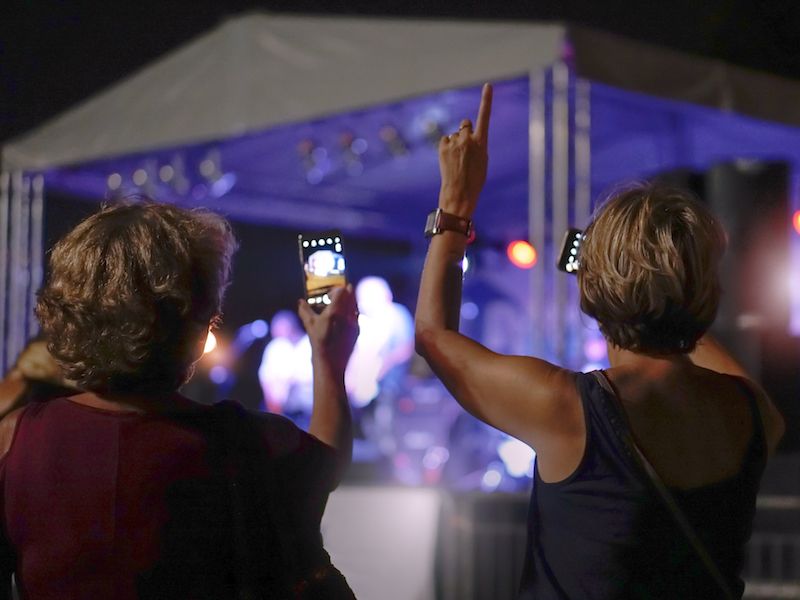
We’ve been looking forward to summer fun all year: swimming in the pool, visiting the beach, and other activities that may injure your hearing. You might find yourself in external scenarios or exposed to other loud sounds this summer that can be hidden hazards to your ears. Any noises above 80 decibels could harm your hearing, while enduring hearing loss can take hold in pools or other bodies of water. To keep your hearing safe this summer, you have to be conscious of your environment and take preventative measures. Here are 6 of the summer’s hidden hearing risks.
When You go to Concerts, Wear Ear Protection
Whether you’re at an indoor venue or an outside concert venue you still should use hearing protection during concerts. 90 decibels is inside the danger zone for hearing damage and live music reaches this volume even at outdoor venues. That’s the reason it’s always a smart strategy to wear earplugs whether you’re seeing a concert indoors or outdoors. You can still hear the sounds with earplugs it’s just dampened a little bit. If you’re going to a concert with young children, think about getting them a heavy duty set of earmuffs because kids have more sensitive hearing than adults.
Fireworks Are More Than Just Loud
Honestly, there are a lot of reasons to avoid fireworks in the summer. We’re not talking about the skilled 4th of July fireworks show, we mean the backyard fireworks that cause hundreds of injuries throughout the summer season. Along with causing hand traumas, blindness, and home fires, backyard fireworks can also cause severe damage to your hearing since they are known to achieve volume levels of 155 dB. This 4th of July, leave the fireworks to the professionals and enjoy the show from a protected and sound distance.
Mowers Can Bring About Hearing Loss
If you love to take care of your yard, mower, edger, and trimer are your best friends. But have you ever noted how off your ears feel when you finish, how everything sounds muffled or your ears are ringing? That’s because the constant noise from your lawn tools impact your hearing over time. You may have noticed landscapers wearing some type of hearing protection, you should take a cue from them and wear earplugs or earmuffs next time you attend to your lawn to ensure your hearing doesn’t get injured.
Here’s How to Protect Your Ears When You Take a Swim
Millions of people suffer from swimmer’s ear every summer, which occurs when bacteria-laden water becomes trapped inside your ear canal. Painful earaches and swelling are the result when the ear gets infected by the bacteria. These bacteria are commonly found in rivers and lakes but sometimes also live in pools and hot tubs if the water is not correctly treated. No permanent injury should take place if you have your ears checked out by a hearing professional. To counter swimmer’s ear, though, you will want to wear specialized swimming earplugs in the pool and get your pool water tested to be certain the chemical balance is ok.
Boats and Other Water Sports
If you enjoy the water, summer is beach and boating time for you. But, jet ski and boat engines are often noisy,we’re talking over 100 decibels. Continual subjection to that much noise for a period of around 15 minutes can lead to lasting hearing damage. Once again, it’s probably in your best interests to use a pair of throw away, foam earplugs when you’re out on the water to make sure you don’t inadvertently harm your ears.
Your Hearing Can be Harmed by Car Races
It doesn’t matter what type of auto racing you love, midget, Formula 1, drag racing, motorcycle Formula 1. All of them can present a huge problem for your hearing if you go to race after race this summer. It’s calculated that volume levels can go over 120 decibels at some races, which is definitely inside the danger zone for hearing injury. Earplugs are your best bet at these races, whereas your children should definitely wear the earmuffs we mentioned earlier. Because you may not get to appreciate the sounds of any races in the future if you don’t.